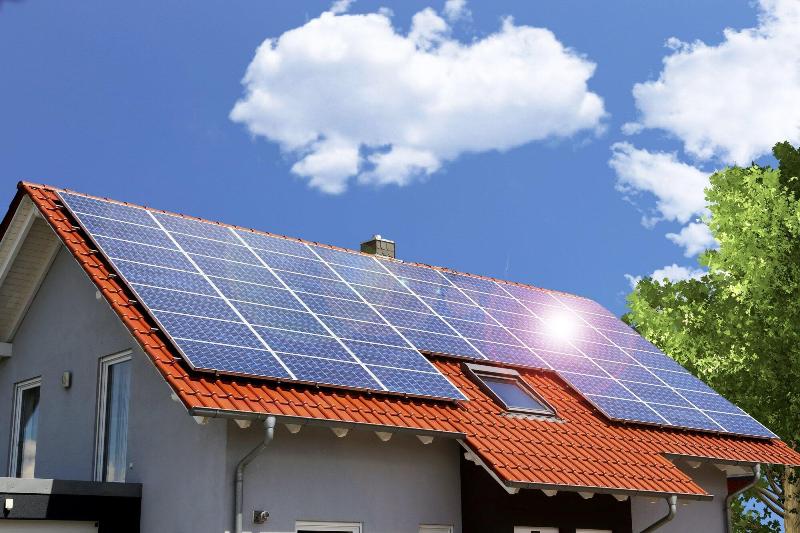The world is shifting towards more sustainable living. The concept of a solar powered tiny house has emerged at the forefront of green home design. This compact, energy-efficient living solution is not kinder to the environment.
Imagine reducing your energy bills and lowering your carbon footprint. You can also relish the simplicity of a minimalist lifestyle – all from the comfort of your own tiny home.
Join us as we delve into the benefits of a solar powered tiny house for both homeowners and the environment.
Let’s dive in!
Financial Benefits
An advantage of a solar powered tiny house is its financial benefits. These homes rely on renewable energy. Allowing homeowners to save on their utility bills. Make sure to check out to reputable website for more information on the financial benefits of having a solar system installed in your home. You can also check Blue Raven Solar website for detailed costs of having them installed.
Here are considerations to take into account when considering a solar-powered tiny home:
A Lower Energy Bill
Solar panels harness the sun’s power to generate clean electricity. This reduces our carbon footprint and saves on utility bills. They provide a reliable and efficient source of energy. This makes them popular for homes and businesses, and paving the way for a greener future.
Energy Independence
By embracing a solar-powered home, you reduce your dependence on the grid. It also safeguards your finances by cutting the impact of rising energy costs.
These houses can harness the sun’s abundant energy. Allow you to enjoy sustainable and cost-effective power for years to come. This also allows you to contribute to a greener future. All the while enjoying long-term savings.
Cost-Effective Maintenance
Solar panels need very little to no maintenance. This makes them a cost-effective choice compared to traditional energy systems. You can enjoy long-term savings while harnessing renewable energy from the sun. Embrace sustainability and reduce your carbon footprint with this eco-friendly solution.
Environmental Benefits
The environmental benefits of a solar powered tiny house are vast and far-reaching. These homes have a lower carbon footprint compared to traditional houses.
Here are the environmental benefit highlights of a solar powered tiny house:
Reduced Carbon Emissions
As mentioned, these eco-friendly homes are designed to rely on renewable energy sources. It can include solar power, wind turbines, and geothermal systems. By harnessing these sustainable home energy solutions, these homes cut the need for fossil fuels. This results in reduced carbon emissions. It also allows us to contribute to a greener and more sustainable future for our planet.
Conservation of Natural Resources
Conventional residences consume a large amount of energy and precious natural resources. Homeowners can reduce their consumption rates. They can also contribute to the conservation of valuable resources.
Minimal Impact on the Environment
These homes have a smaller physical footprint. They occupy less space and cause minimal disturbance to their surroundings. Many designs for tiny homes embrace sustainable materials. This further reduces their environmental impact even further.
Preservation of Biodiversity
Solar powered tiny houses offer many benefits, including the preservation of biodiversity. These houses use sustainable materials and have smaller footprints. This reduces habitat destruction caused by traditional housing.
By harnessing solar energy, they also cut pollution. Allowing them to support the health of an ecosystem. They contribute to a healthier and more diverse natural world for future generations.
Lifestyle Benefits
Solar powered tiny houses offer lifestyle benefits that can enrich the lives of homeowners. These include:
Simplified Living
Tiny houses offer a unique opportunity to embrace a minimalist lifestyle with limited space and simplicity. They inspire appreciation for the essentials and encourage sustainable living.
These compact dwellings maximize functionality and efficiency. It uses innovative storage solutions and have a creative use of space. Embracing the tiny house movement fosters mindfulness and intentionality in our daily lives.
Mobility and Flexibility
Tiny homes are often constructed on wheels, granting homeowners the ability to move whenever they please. This bestows upon them a remarkable sense of freedom and flexibility. It also provides unparalleled advantage not found in conventional houses.
Closer Connection to Nature
Tiny houses can be constructed on rural or remote land. This enables homeowners to live in closer proximity to nature. Allowing them to enjoy the serenity and tranquility of a natural environment.
Tax Benefits
Homeowners of a solar powered tiny house may also be eligible for tax benefits. Depending on the location, homeowners may receive tax credits. They can also receive exemptions for installing renewable energy systems in their homes.
Here are the different tax incentives for solar powered tiny homes:
Federal Tax Credit
The government offers a tax credit of up to 30% for homeowners who install solar panels on their houses. This credit is available until the end of 2024 and can be claimed through the ITC.
State and Local Incentives
Many states and local governments offer their own tax credits or exemptions for renewable energy systems. These incentives vary depending on the location and may include property tax exemptions or rebates.
Net Metering
Net metering allows homeowners to sell excess energy generated by their solar system back to the grid. This results in credits on their utility bills.
This can provide significant savings over time. This makes solar powered tiny homes an even more attractive option for homeowners.
Sales Tax Exemptions
Some states provide sales tax exemptions for renewable energy systems, including solar panels. That means you can save a significant amount on the upfront costs of your solar system by not having to pay any sales tax when you buy.
Accelerated Depreciation
The Modified Accelerated Cost Recovery System (MACRS) allows for a rapid write-off of equipment like solar panels. This can provide major tax relief and improve your return on investment.
Property Tax Exclusion
In several states, the added value of a residential solar system is excluded from the valuation of your home for property tax purposes. So, even though the value of your home increases when you install solar panels, your property taxes won’t.
Renewable Energy Equipment Grant Program
Certain states provide grants when you buy and install renewable energy systems. Though it’s not a tax benefit in the traditional sense, this program can reduce the initial cost of setting up a solar panel system.
Health Benefits
Solar powered tiny houses also contribute to the health of the homeowners. The quality of indoor air is improved. These homes rely on natural sources of light and ventilation. This minimizes the exposure to pollutants and allergens.
Health benefits can include:
Improved Mental Health
Living in a smaller space can promote mental clarity and reduce stress levels. Embracing a minimalist lifestyle can also lead to feelings of satisfaction and contentment. It also fosters positive mental health.
Physical Activity
Tiny houses often need homeowners to be more active due to the limited space. This can encourage regular physical activity that promotes well-being.
Reduced Environmental Impact
By reducing carbon footprint, homeowners contribute to a healthier environment. This can have a positive impact on not only their health but the health of their community as well.
Community Benefits
Choosing to live in a solar powered tiny house often involves becoming part of a like-minded community. This leads to an enriching social environment. Allowing individuals to be supportive of each other’s sustainable lifestyle choices.
Common community benefits include:
Shared Resources
Tiny house communities often promote sharing and collaboration. It allows for communal resources such as gardens, tools, and amenities. This not only promotes sustainability but also fosters a sense of community and connection.
Reduced Environmental Impact
By living in a tiny home community, individuals can reduce their carbon footprint even further. Communities and share resources and put in place sustainable practices together.
This can have a significant positive impact on the environment and contribute to a greener future for all.
Supportive Community
Living in a tiny house community often involves connecting with individuals who share similar values and goals. This sense of community and support can lead to an enriched social life, fostering positive mental health and well-being.
Job Creation
The growing demand for solar powered tiny homes has also created a need for skilled labor and jobs in the renewable energy sector. By embracing this lifestyle, homeowners can contribute to job creation. This allows them to support the growth of green industries.
Increased Home Value
Solar powered tiny homes provide many financial, environmental, and lifestyle benefits. It also increases the value of a property. As more individuals embrace sustainable living, the demand for eco-friendly homes is on the rise. This makes solar powered tiny houses an attractive investment option for homeowners.
Here are different ways solar powered tiny homes benefit property value:
Lower Operating Costs
As mentioned earlier, solar powered tiny houses offer significant savings on utility bills. This translates into lower operating costs for homeowners. It makes these properties more attractive to potential buyers.
Higher Resale Value
The rising demand for eco-friendly homes is expected to increase the resale value of solar powered tiny houses in the future. This can make for a promising investment opportunity for homeowners looking to sell their property.
Trending Market Value
With the growing interest in sustainable living, solar powered tiny homes have become popular. As a result, their market value is on the rise. This makes them an attractive and profitable investment option for homeowners.
Increased Property Aesthetics
Many solar powered tiny homes are designed with a modern and sleek aesthetic, making them appealing to potential buyers. With the added value of renewable energy systems, these homes can stand out in the market and increase their appeal.
Adaptation to Climate Variability
The use of renewable energy in tiny houses allows for greater adaptability to climate variability. With the ability to generate their electricity, these homes are less affected by power outages. They also contribute towards mitigating climate change. This can result in reduced carbon emissions and promote sustainable practices.
Here are different ways solar powered tiny homes contribute to climate adaptability:
Off-Grid Capability
Some solar powered tiny houses are designed to be completely off-grid, meaning they do not rely on any external sources of energy. This makes them more resilient during power outages caused by extreme weather events and other emergencies.
Sustainable and Resilient Design
Many tiny house designs incorporate resilient materials. They also have sustainable features to withstand extreme weather events. This can include solar panels, rainwater collection systems, and efficient insulation. This makes them better equipped to handle climate variability.
Mobility
The mobility of tiny houses allows for adaptability to changing climates and environments. Homeowners can move their homes to areas with more favorable conditions. They can also move away from disaster-prone regions. This promotes resilience and adaptability to climate variability.
Factors to Consider Before Building a Solar System for Tiny House
Before deciding to go solar and build a tiny house, there are several factors that homeowners should consider.
Local Regulations
It’s essential to research and understand local regulations and building codes before construction. Some areas may have restrictions on the size or placement of these homes. While others may need specific permits or inspections for renewable energy systems.
Space Limitations
Tiny houses, by definition, are small in size and may not be suitable for large families or individuals who need more space. It’s important to consider your living needs and whether a tiny house can meet them before committing to this lifestyle.
Maintenance and Upkeep
While solar powered tiny homes offer many benefits, they also need regular maintenance and upkeep. Homeowners should be prepared to maintain their solar panels. Constant maintenance ensures the most efficiency and longevity of your system.
Upfront Costs
The initial cost of building a solar powered tiny house can be significant. Homeowners should consider their budget before making this investment. There are several tax benefits and other financial incentives available that can help offset these costs.
Embracing the Solar Powered Tiny House Movement
Step into the future with the solar-powered tiny house. A vibrant living alternative and a symbol of the sustainable and eco-conscious movement. Experience homeowner benefits such as financial savings and tax incentives. It also results in a reduced carbon footprint and a profound connection to nature.
Unlock resilience and enhance property value while embracing a greener tomorrow.
Head over to our blog for more interesting reads like his.





